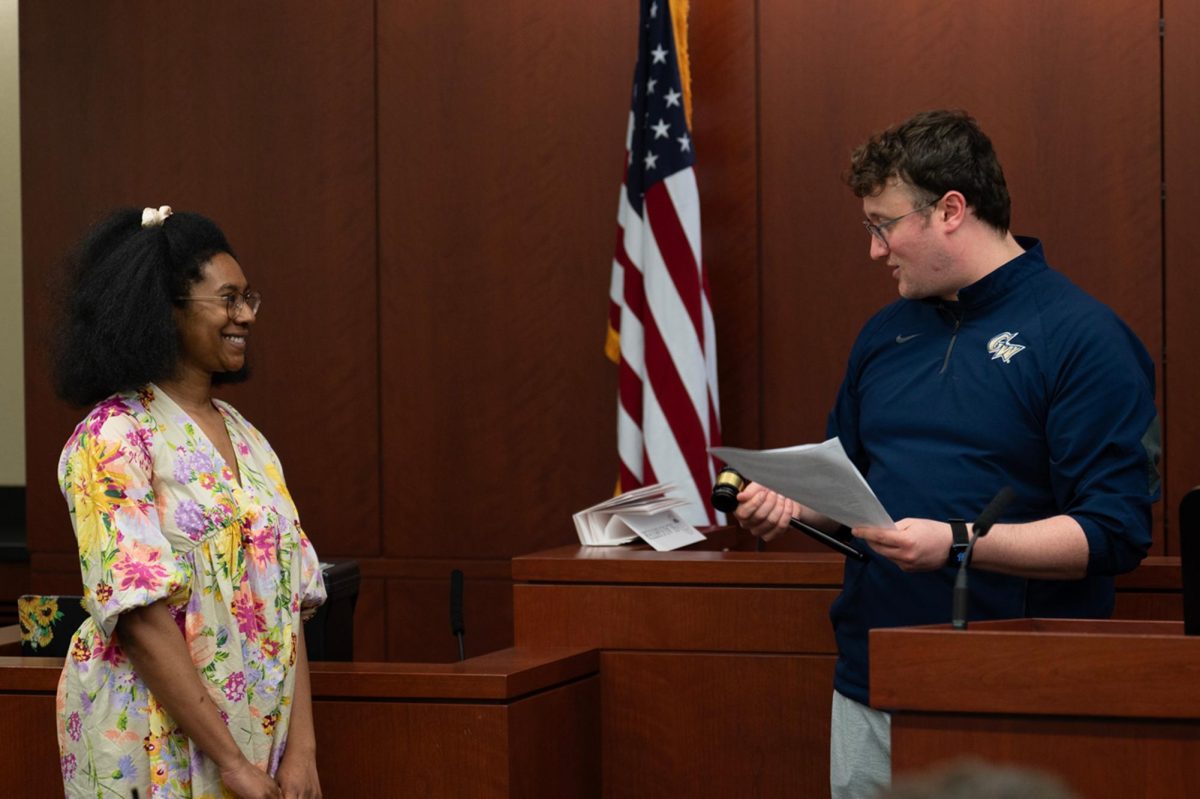The Student Bar Association’s former executive vice president assumed the role of president in June following her predecessor’s resignation after a month in office.
Third-year law student Cherissa Lindsay, who was elected the SBA’s executive vice president in April, said she began transitioning into the role of SBA president in May after former SBA President Raisa Shah told her earlier that month that she was stepping down for “personal reasons.” Lindsay assumed the position on June 20 after a four-week training process that included speaking with last year’s SBA President Shallum Atkinson about how to navigate her upcoming tenure.
According to the SBA bylaws, the executive vice president is to take the helm of the SBA in the event of the president’s resignation.
“I have a supportive cabinet, supportive friends and family that’s been really helpful, but definitely it’s much more work than I anticipated,” Lindsay said. “But I’m ready to do the job, and so far, I think I’m doing an okay job.”
Shah ran for SBA president in April and previously served as the vice president of first-year law students under former SBA President Shallum Atkinson during the 2023-24 term. Shah declined to comment on why she stepped down from her role as president in May after she was sworn in by the SBA Senate in April.
Lindsay served on Atkinson’s cabinet during the 2023-24 SBA term as a vice president of programming, where she planned GW Law events throughout the year like a Washington Nationals baseball game and “bar reviews,” events where law students got together to explore local bars.
Lindsay said the first thing she did when she stepped into the role in June was appoint a new cabinet and select former SBA Sen. Nigel Walton as her executive vice president. Lindsay said before the start of her presidency, she had chosen Walton to serve as the SBA Senate’s director of legislative affairs and later appointed him as her executive vice president because of his experience as an SBA senator and his “direct” approach to SBA senate proceedings.
“I needed someone on my staff who is much more firm than I am,” Lindsay said. “I’m someone who’s sort of more kind, outgoing, I don’t want to hurt people’s feelings. Nigel doesn’t care about that. He’s straight to the point, he’s here to do the work.”
Lindsay said she knew she wanted to remain in the SBA going into the election last semester but initially did not want to take on more responsibility than the role of executive vice president. Lindsay said although she never expected to assume the role of SBA president, she is confident she can learn quickly and lead the body.
“It’s a little nerve-racking, because obviously I want to do a good job in any position,” Lindsay said. “It does get hard sometimes because this isn’t the position I ran for, and I wasn’t expecting to do this position, but so far, it’s been good.”
Lindsay said her goals as president are mainly a “rollover” from the goals she set as executive vice president, which include creating a more inclusive community for all GW Law students and providing part-time and evening law students with a more “traditional” law school experience by ensuring their voices are heard within the SBA through conversations with GW administrators.
Lindsay said the first step she took to accomplish her goals during the 2024-25 term was to set up monthly meetings with deans at the law school and appoint students with “diverse interests” to her cabinet. Lindsay said she appointed “nontraditional” students like part-time and evening students as well as students of color in order to have more diversity within the high positions of the SBA.
“I think, honestly, we just needed people in positions that they actually care about and are actually passionate about who will do the work,” Lindsay said.





